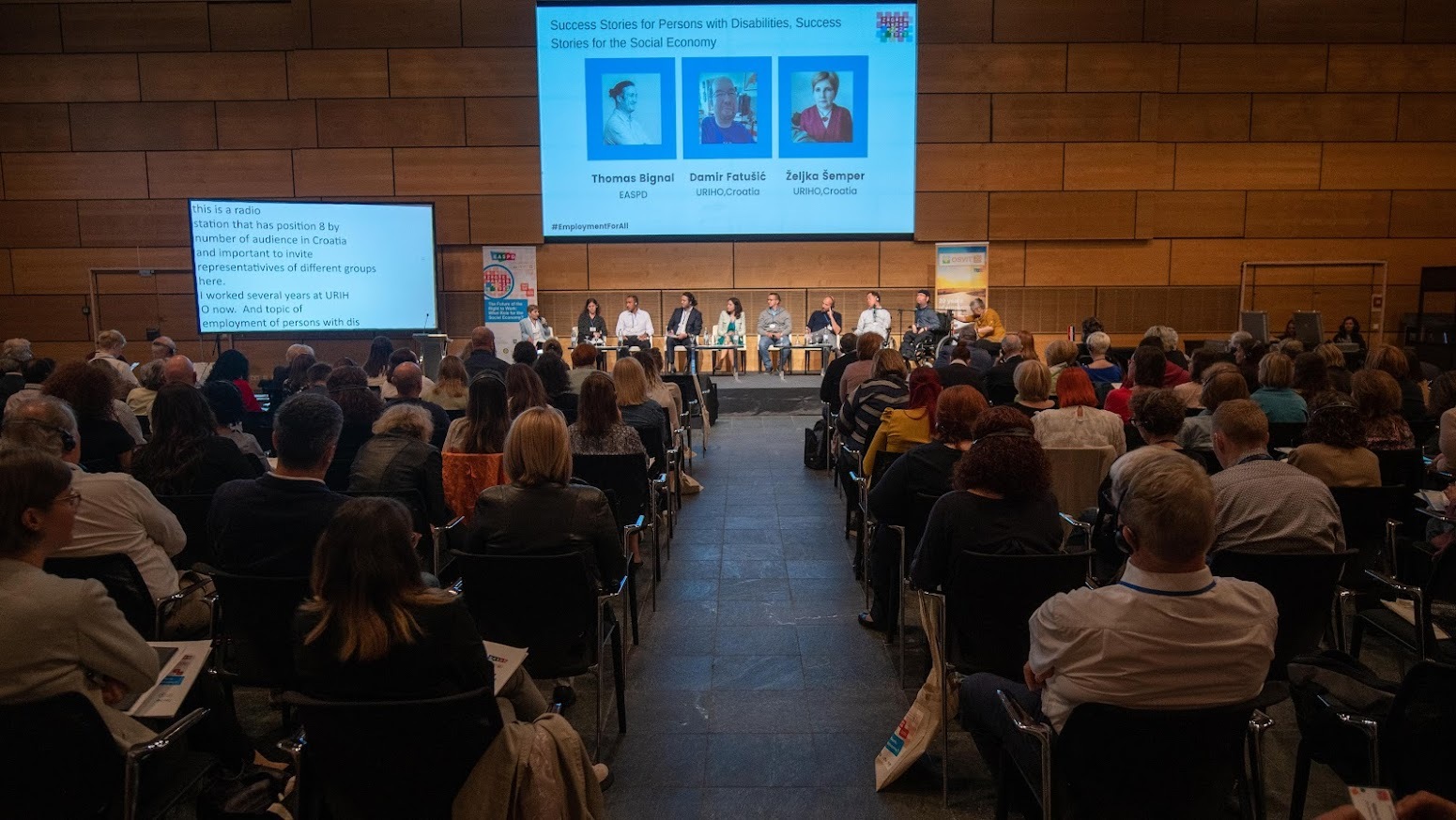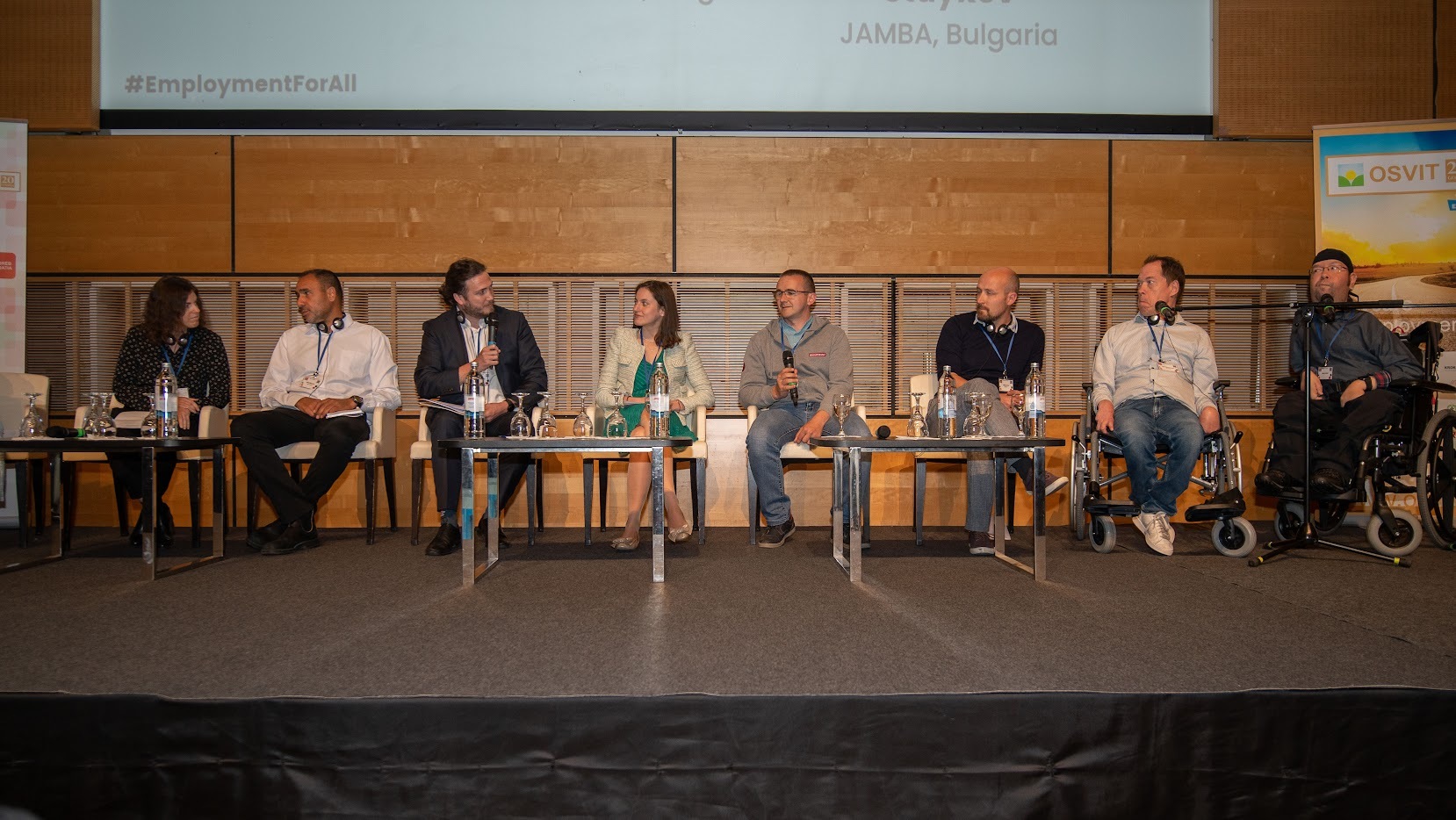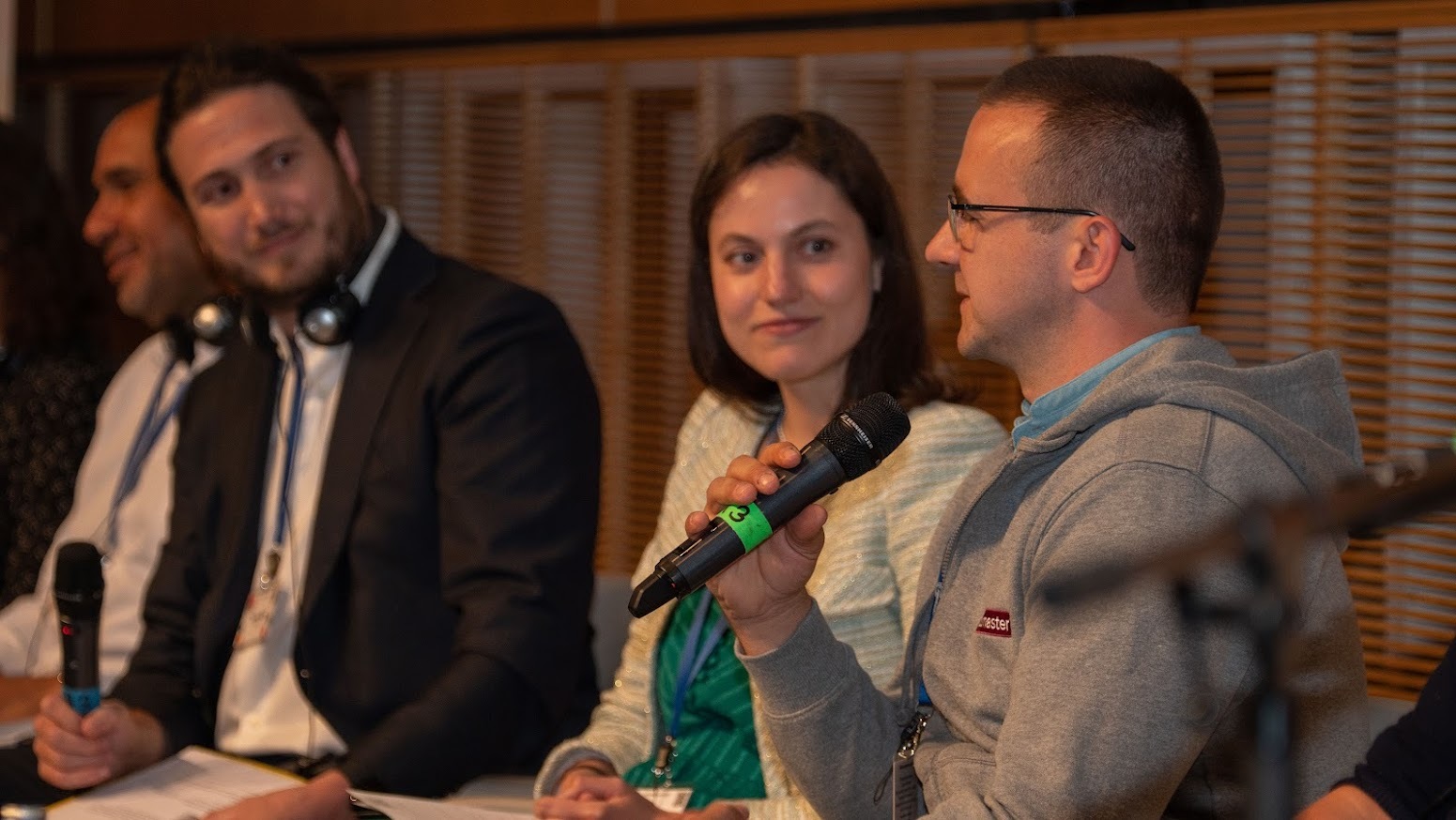Work inclusion for people with disabilities - past and future

Borislav Staykov
JAMBA, which assisted Documaster in the process of hiring me, asked to showcase a successful example of their work in the field (connecting people with diverse abilities in Bulgaria with potential employers). I immediately took the opportunity to share my experience, but more importantly – to better understand the situation for people like me all over Europe. Just FYI – Bulgaria is not that bad of a place for people with disabilities.
EASPD is the organization, which recommends practices aimed at improving the lives of people with disabilities to the European Union. Therefore, it is in their capacity to introduce changes, reflecting the current needs of people they represent. The above-mentioned conference was the first time since 1994, when actual people with disabilities were invited to give their point of view, so I knew I should make it count!
The event began with our panel: a person on a wheelchair, a girl with hearing impairment and I, representing people with sight deficit – sharing the success stories and actual paths we, the “end-users” of EU disability policies and practices, followed in achieving proper integration in the labor markets.
A lot of the leaders of Service Providing agencies and NGOs wanted to know how we managed to achieve proper inclusion in our fields of work. We told them, that the world is realizing the untapped potential in people with disabilities. With the right toolsets we can give even more than regular employees, because we are motivated to prove our capabilities, despite all the barriers we need to overcome on a daily basis.
The discussion was inspiring for everyone, of course, which is great, but then, it was time to talk about the policies and the problems, which should be considered for debate and eventual resolution.
After much presenting of different strategies and their effects on the respective target groups – I noticed a trend in most of the European countries. Yes, the governments provide financial support and assistive services, but if a given person wants to work – they are blocked by a wall of bureaucracy and they face loosing the benefits and services they are entitled to.
- For example, in Portugal, Spain and Belgium, if you want to work, you have to let go of the so-called disability pension, ranging from the minimum wage to 1900€. Given this context, one can argue that disabled people are practically incentivized to stay at home and get the “easy” money, rather than put in the effort to find a job.
- Another potential problem is a term called Sheltered Employment, meaning workplaces, operated by and employing people with disabilities. In Israel, there are more than 300 such factories and businesses. That’s a great idea if carefully applied, but it can also become a segregating strategy. In Bulgaria, we have a case in point (but we are far from being the exception) - there is a sheltered employment plant directly beside the Sofia ring road with living quarters around it, so practically – the people with disabilities working in the plant have everything they need on site and just stay there, in the outskirts of the city, in a way isolated. Therefore, one can argue that this strategy actually impedes integration.
- Finally, a personal observation – discrimination has been a buzz word for quite some time now. It’s fantastic that we are trying to eliminate discrimination, but sometimes, the steps taken towards this goal are steps backwards. I shared my concerns about the elimination of specialized schools for people like me, where, apparently I learned more than many of my peers in regular schools. My point is that we need an educational approach tailored to the the needs of the specific group, rather than bulking everyone together, and I think I got it across.
We’ve come a long way, but there is still plenty to work on. Despite the concerns shared above, the future looks brighter than ever for the persons with disabilities. Inadequate and inefficient methods of integration are being phased out. The overall conclusion was that the environment is evolving, and so are the opportunities for realization of people’s potential in many of the contemporary fields of work.



Highlighted text
Highlighted text
List with icons
List with icons
List with icons
Accordion
We’ve come a long way, but there is still plenty to work on. Despite the concerns shared above, the future looks brighter than ever for the persons with disabilities. Inadequate and inefficient methods of integration are being phased out. The overall conclusion was that the environment is evolving, and so are the opportunities for realization of people’s potential in many of the contemporary fields of work.
Accordion
Description
Accordion
Description